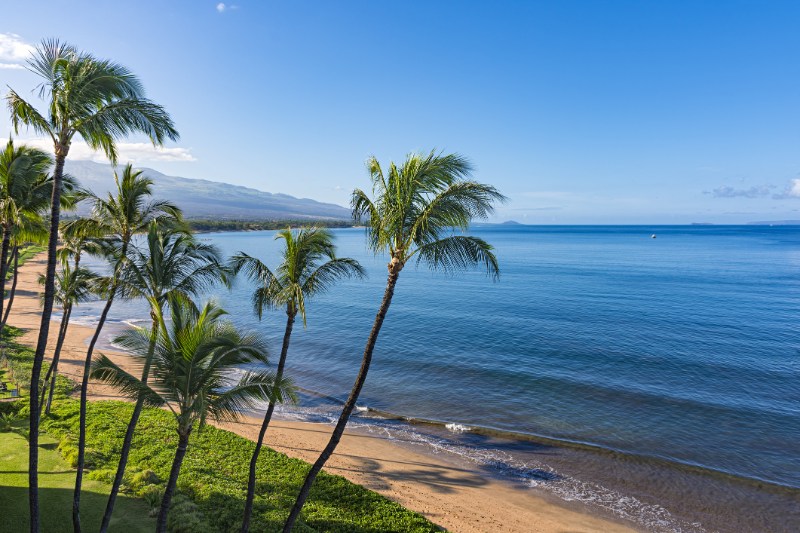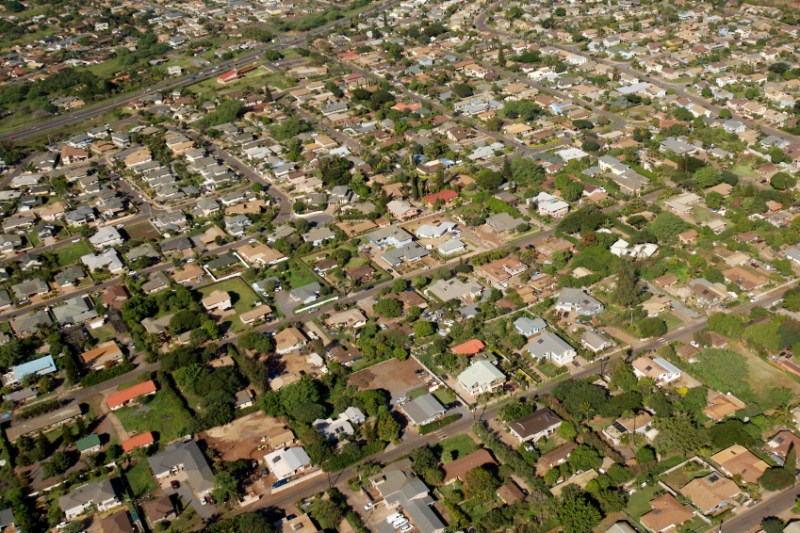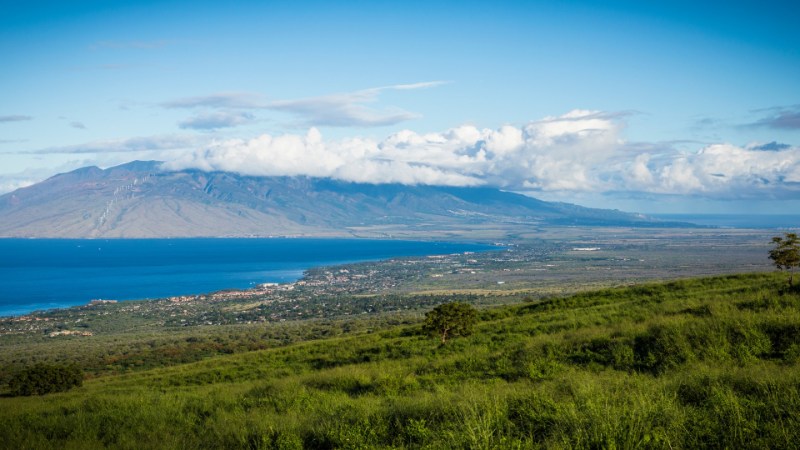
Kihei’s Sugar Beach
Kihei, nestled on the sun-soaked southwestern shores of Maui, is not just a tropical paradise but also a prime destination for real estate investment. Over the years, the allure of Kihei has captivated the attention of foreign nationals, many of whom seek to invest in real estate in this beautiful, laidback corner of Hawaii.
If you’ve been thinking about owning a home on Maui, Kihei might just be the spot for you. In this comprehensive guide, we will navigate through the key considerations for foreign buyers venturing into Kihei’s real estate market.
WHAT YOU NEED TO KNOW ABOUT KIHEI REAL ESTATE
Purchasing a tropical island home can be one of the most rewarding investments you can make. Whether you decide to sell it in the future or choose to live in Kihei for generations to come, the combination of the incredible location and the area’s continuous upward trend in property values means you’ll always enjoy an excellent return on your investment.
Understanding the Kihei real estate market
So what can you expect as a homeowner in Kihei?
Overview of Kihei and nearby neighborhoods
A classic Hawaiian beach town, Kihei is located within easy driving distance of Maui’s diverse communities, each of which offers a unique blend of amenities and lifestyle. Hugging the coastline along Maalaea Bay, it encompasses an area of roughly 12 square miles and features a sunny, mostly dry climate as well as six miles of wide sandy beaches.
With Maalaea Harbor on one end and Wailea-Makena on the other, you will find that Kihei makes for a great jump-off point for exploring the rest of the island. Nearby you will find:
- Wailea
- Located just south of Kihei, Wailea is renowned for its upscale resorts and residential areas.
- Features world-class golf courses, high-end shopping, and fine dining.
- Offers stunning oceanfront properties with panoramic views.
- Makena
- South of Wailea, Makena is a more secluded and exclusive area.
- Boasts pristine beaches, including Big Beach and Little Beach.
- Home to luxurious estates and upscale residences.
- Maui Meadows
- Situated on the slopes above Kihei, Maui Meadows offers a mix of custom homes.
- Provides panoramic views of the ocean, making it an attractive residential area.
- Offers a more rural feel while still being close to Kihei’s amenities.
- Kahului
- To the north of Kihei, Kahului is Maui’s main commercial center.
- Features shopping centers, businesses, and the Kahului Airport.
- A convenient location with a mix of residential and commercial spaces.
- Wailuku
- Northeast of Kihei, Wailuku is the county seat of Maui.
- Offers historical sites, cultural attractions, and a variety of shops.
- Features a blend of residential neighborhoods and commercial areas.
- Paia
- To the north of Kahului, Paia is a charming town with a laid-back atmosphere.
- Known for its artistic community, boutique shops, and diverse dining options.
- Close to popular surfing spots on Maui’s North Shore.

Current Kihei real estate market trends
Staying ahead of market trends is crucial in making educated choices in long-term investments. Home values in Kihei have been trending upwards over the last five years. This, coupled with a sale-to-list price ratio in the high 90s, indicates steady demand. In short, you will find the market to be somewhat competitive so be prepared to be flexible.
Average housing costs in Kihei
Home prices in Kihei have risen significantly over the last few years. Compare the median sold price of $671,000 in March 2021 to February 2024’s $969,000, for one. And note that the median listing home price has had a year-over-year increase of 29.8%. This is all unsurprising considering the perennial appeal of living in Kihei.
On the upside for buyers, the market seems to have moved on from the frenzy of late 2021 to 2022, when homes would barely stay a month on the market. In January 2024, the median time homes spent on the market was a more normal 41 days.
Emerging trends in Kihei real estate
One significant trend further burnishing Kihei’s allure is the growing demand for eco-friendly homes. Buyers and investors increasingly seek properties with sustainable features, aligning with Hawaii’s commitment to environmental conservation. Kihei, with its emphasis on responsible development, stands as a beacon in this trend, attracting those who value both luxury and ecological mindfulness.
The tourism-driven rental market also continues to thrive, which highlights Kihei’s potential for investors. With the state’s tourism industry proving remarkably resilient, rental properties in Kihei enjoy consistent demand. Vacation rentals, in particular, have become a lucrative avenue for investors, offering the dual benefit of income generation and potential for property appreciation.
Then there’s the integration of smart home technologies, the demand for which is transforming Kihei’s real estate landscape. Modern amenities that enhance energy efficiency and provide a seamless living experience are increasingly sought after. Kihei’s real estate market is adapting to this trend, further enhancing the appeal of properties here.
Things to consider when owning a home in Kihei
Owning a home in Kihei offers a lifestyle surrounded by natural beauty and cultural richness. But potential buyers unfamiliar with island living will also want to do their due diligence.
What other factors should you consider before buying your Kihei home? The state, in general, is known for its higher cost of living, impacting housing prices, daily expenses, and overall affordability. Being in the Pacific, Kihei is also susceptible to coastal hazards. Homeowners need to factor in insurance and learn how to take precautions for such events.
Also, while tourism is beneficial for the economy, homeowners may find crowded beaches and increased traffic during peak tourist seasons in the general area. Though in this respect Kihei is fortunate that it’s not as overdeveloped as some areas. And Maui’s robust tourism industry can also be advantageous for homeowners interested in short-term rentals and potential income opportunities.
All in all, however, Kihei is definitely worth the move. It offers a slice of Hawaiian paradise with its stunning beaches, warm climate, and breathtaking landscapes, providing a unique setting for idyllic living. Kihei has a laid-back and welcoming community atmosphere, making it an ideal place for families, retirees, and those seeking to thrive in a close-knit neighborhood. Embracing the Aloha spirit, the beachside town hosts various events, festivals, and cultural activities, providing a rich and diverse cultural experience. Residents can indulge in a healthy and active outdoor lifestyle, enjoying water activities, hiking, and exploring the natural wonders that Maui has to offer.

THE HOMEBUYING PROCESS FOR FOREIGN BUYERS
Purchasing property in Kihei is not so different from purchasing property in other areas in the United States. There are currently no restrictions to foreign ownership of real estate in Hawaii. That said, there are certain considerations that you will want to keep in mind so you can enjoy a more seamless experience.
Financing options for foreigners
Many foreign buyers find it simplest to finance their real estate purchase using their own cash reserves. This also gives them an edge when competing with offers from other buyers. But if a cash purchase is not the ideal choice for you, we recommend working with a local lender to finance your Kihei real estate investment.
Working with local financial institutions
Building a relationship with local financial institutions is our recommended option, especially if you want to close fast on a Kihei property. This is because local lenders are familiar with the particular nuances of the real estate market in Hawaii and will know how to navigate around potential roadblocks. Many also have experience working with foreign nationals and can guide you as to your options on conventional loans, ITIN loans, and so on.
Kihei real estate property taxes
One of the first steps to investing in Hawaii real estate? Learning how property taxes work in the state. Understanding tax implications is crucial for financial planning. There’s two main tax acts to know before diving deeper into your Kihei home search: HARTPA and FIRPTA.
HARPTA is a state-level regulation specific to Hawaii designed to capture taxes owed by non-resident property sellers. When a property is sold, the buyer is required to withhold a percentage of the purchase price and remit it to the Hawaii Department of Taxation. This withholding acts as a safeguard, ensuring that the state receives the appropriate taxes from the seller, who may not have a permanent residence in Hawaii.
For buyers in Kihei, this means being prepared to withhold a percentage of the purchase price during the transaction. As of the last update in 2022, HARPTA withholding is set at 5% of the sales price for non-resident sellers. However, this rate is subject to change, and it’s crucial for buyers to check the latest regulations or consult with a tax professional during their transaction.
FIRPTA is a federal regulation that applies to foreign sellers of U.S. real estate. When a foreign individual sells U.S. property, the buyer is required to withhold a percentage of the sales price to cover potential taxes owed to the U.S. government. FIRPTA withholding is set at 15% of the sales price, and this amount is submitted to the Internal Revenue Service (IRS) unless an exemption applies.
For buyers looking to invest in Kihei real estate, understanding FIRPTA is crucial, especially when dealing with foreign sellers. The withholding is a security measure, ensuring that the IRS receives its share of taxes from the property sale. Like HARPTA, buyers should stay updated on any changes to FIRPTA regulations and seek professional advice for accurate compliance.

Kihei real estate permits and requirements
Owning real estate in Kihei, Hawaii involves adherence to specific permits and requirements. Here are key aspects for potential property owners to consider:
- Land ownership restrictions
Hawaii has unique regulations regarding land ownership, especially agricultural land. Understanding the restrictions and eligibility criteria is crucial. While owning a condominium may have fewer restrictions, acquiring land demands careful consideration.
- Building permits
Before embarking on construction or significant renovations, property owners must secure the necessary building permits. The Maui County Department of Public Works oversees these permits, ensuring that structures comply with safety and zoning regulations.
- Short-term rental permits
For those considering renting their property as a short-term vacation rental, it is important to first know whether or not the property allows it. Check out our video on Maui AirBnB rules and zoning restrictions:
Maui AirBnB Rules and zoning restrictions- What is the Minatoya List?
We also talk about short-term vs. long-term rentals here:
Buying a Condo? Short Term VS Long Term Rentable | AirBnb | STR Investment | Hawaii Real Estate Maui
- Land use entitlements
Certain properties may have specific land use entitlements or restrictions. Take the time to understand these restrictions to avoid potential legal challenges and to ensure that any planned use aligns with local regulations.
- Environmental permits
Given Hawaii’s commitment to environmental preservation, property owners may need permits for projects affecting the environment, such as shoreline development or tree removal. Be sure to consult any local regulations before any drastic changes.
- Water rights and usage
Water rights are a critical consideration for property owners, especially in an area like Kihei. Understanding water usage regulations and obtaining the necessary permits is crucial for landscaping and irrigation purposes.
- Real property tax compliance
Property owners must stay current with real property taxes administered by the County of Maui. Staying updated on tax assessments and payments ensures the uninterrupted ownership of the property.
- Association rules and covenants
For those residing in planned developments or condominiums, adherence to association rules and covenants is mandatory. These regulations may cover property maintenance, exterior alterations, and other aspects of homeownership.

Negotiation strategies for foreign buyers
Having a comprehensive understanding of the homebuying process can help you in what may be the most challenging part: negotiating with the seller. We also recommend working with an experienced real estate professional to support you in these steps.
What can a Kihei real estate agent help you with?
- Understanding local market dynamics
Local market dynamics play a crucial role in negotiations. Foreign buyers can gain valuable insights into the local market so they can negotiate on their potential property effectively.
- Negotiation tips for a favorable deal
Tom is a certified negotiation specialist with over 20 years experience in Maui real estate. He has a deep understanding of the Kihei market and knows exactly what to do to close a deal successfully and seamlessly.
WORKING WITH A KIHEI REAL ESTATE EXPERT
Investing in Kihei real estate is not just a transaction; it’s an immersion into Hawaiian culture. Kihei stands as a prime destination for those seeking not just a property, but a piece of paradise that promises both immediate and long-term returns on investment.
Get in touch with me, Tom Tezak, and the elite group of agents of the Lifestyle Maui Team. We can help you navigate Kihei’s many opportunities, while providing service that’s truly exceptional.
Call us today at 808.746.3347 or leave us a message through this page.

